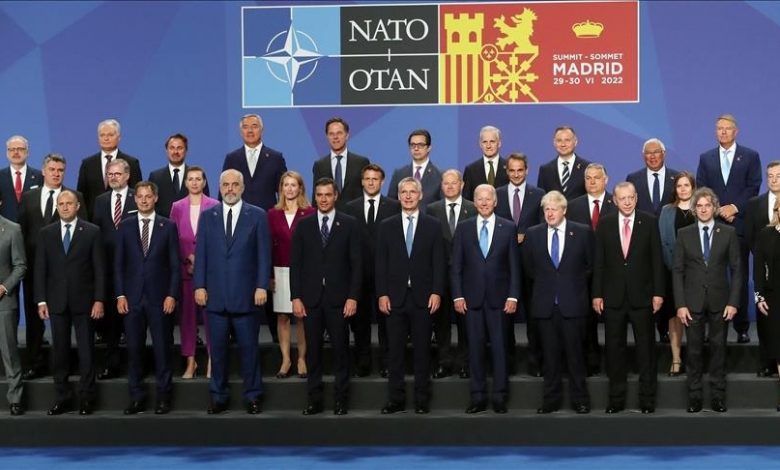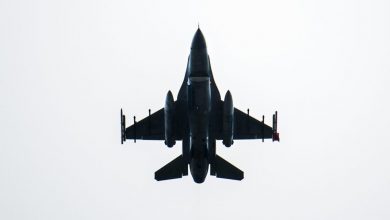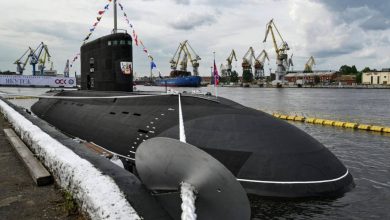Analysis: Madrid Agreement and the balance policy in Turkish foreign policy

Sweden and Finland’s NATO bids allowed Türkiye to include its security concerns to international agenda
Since joining NATO in 1952, Türkiye has always supported the transformation policies of the Alliance. Despite periodic crises and conflicts of interest, Türkiye’s role as an ally of NATO has been the main bond in relations with Western partners. The membership in the NATO alliance has been indispensable for Türkiye in a bipolar world after the Cold War, not only due to its interests but also for its identity perspective. With the desire to handle the security threat emanating from the Soviet Union and consolidate its Western identity, NATO has always been important for Türkiye.
Türkiye’s NATO strategy
At the end of the Cold War, although there were differences of opinion between Türkiye and its NATO allies over identity and threat definitions, Türkiye supported the Alliance’s transformational policies. It made sure not to be separated from NATO’s open-door policy focusing on enlargement, while also strived to contribute its best to the fight against terrorism, organized crime, cyber threats and piracy activities on the seas. The Turkish army contributed to the multinational peacekeeping operations carried out by NATO.
When considering this background, it is not surprising that Türkiye has chosen the way to an agreement amid Sweden and Finland’s NATO membership bids and did not veto the accession of these two countries to the alliance. It would be surprising if Türkiye remained as the sole member differing from the membership of Sweden and Finland, two countries who have abandoned their security policy focused on neutrality and not joining alliances that they have had for many years and applied for NATO membership. While it is quite natural for Türkiye to bring up its national sensitivities as a NATO ally, it is not realistic for some anti-Türkiye parties to present this attitude as a negative development and to interpret that Türkiye’s strategic direction is moving away from the West. It is forgotten that Greece has prevented North Macedonia’s NATO membership for many years by citing its national interests and that Germany and France have been objecting to the NATO membership of Ukraine and Georgia for years, again in the context of their relations with Russia.
Some claimed that Türkiye would veto the participation of Finland and Sweden in NATO, using its own national interests as an excuse, thus weakening the Alliance. However, when looking at the policies of Türkiye on NATO’s transformation since the end of the Cold War, it can be seen that Türkiye is not acting contrary to the common opinion within the Alliance. It is a requirement of international politics to negotiate by prioritizing the interests of the country up to a certain point and to act in accordance with the common opinion emerging within the Alliance at the end.
Türkiye began to change its perspective on NATO a long time ago due to its strategic autonomy and multilateral foreign policy understanding. For decision-makers, being more inquisitive within the Alliance and making full use of all the institutional privileges offered by the membership to prevent the issues raised in NATO’s transformation from harming Türkiye’s national interests was the top priority.
NATO membership of Finland and Sweden
It is known that Finland and Sweden do not show the necessary sensitivity in Türkiye’s fight against terrorism and even support the YPG/PYD, the Syrian extension of the PKK terrorist organization. Again, after the treacherous coup attempt by FETO in 2016, those who escaped from Turkish justice and took refuge in these two countries were not extradited despite Türkiye’s repeated demands. The arms embargo imposed by Sweden on Türkiye, using the military operations in northern Syria as an excuse, was also a subject of disagreement. It is also a fact known to Ankara that a significant number of PKK sympathizers reside on the territories of these two countries and that these two countries are influential in their critical policies toward Türkiye.
After a meeting held in Madrid on 28 June 2022, a memorandum was signed between Türkiye, Sweden, and Finland. The acceptance of Helsinki and Stockholm to meet Ankara’s demands was the most important development that enabled them to be invited as NATO members. The two countries’ agreement to provide all kinds of support to Türkiye, ending the arms embargo, and promising to complete the necessary legal and administrative work for the extradition of terrorist PKK and FETO sympathizers to Türkiye should be seen as important gains from the perspective of Türkiye. It is absolutely important that Ankara’s objections have been taken into account and that the text of the agreement signed after the negotiations is embraced by NATO.
Considering the realist turnaround in Turkish foreign policy in the last three years, it is quite meaningful that Türkiye did not veto NATO enlargement. Even though Sweden and Finland had not applied for NATO membership, the policy that Türkiye had followed since the beginning of Russia’s war on Ukraine was appreciated. Mediating between the parties and contributing to a possible cease-fire have been among Türkiye’s foreign policy priorities. Türkiye’s role in overcoming the global energy and food crisis and improving Ukraine’s defense capacity against Russia was considered positive. These steps taken by Türkiye within the framework of the traditional balance policy can be seen as contradicting the policies adopted by other NATO members against Russia. However, Ankara’s support for the NATO memberships of Helsinki and Stockholm in the last instance revealed beyond discussion the fact that Türkiye is a NATO member and it minds aligning its strategic choices with NATO’s policies.
Türkiye’s achievements at NATO Summit
While the tension between NATO and Russia amid the war in Ukraine paved the way for Sweden and Finland to join NATO, it is an important geopolitical result that the Alliance, which is claimed to have been brain dead, emerges stronger from this crisis. The critical role played by Türkiye in achieving this result should be noted. The fact that Türkiye has lifted its veto has the potential to clear up the question marks about Ankara’s strategic choices.
In addition, this process is very important for a sustainable environment of trust, as it makes it possible for Türkiye to bring its security sensitivities to the international agenda and for these sensitivities to be noted by Western states. The NATO member states, especially the US, hailing Türkiye’s constructive stance may lead to a positive leap forward in Ankara’s relations with the West.
The bilateral meeting between President Recep Tayyip Erdogan and US President Joe Biden after the deal carries positive signals for the future. Biden’s praise of Türkiye’s stance and his positive talk on Turkish policy during the Ukraine tension may pave the way for other positive results in Turkish-American relations. Biden’s hand is stronger now, who asked Congress to play a facilitating role in the sale of F-16 warplanes demanded by Türkiye. Although it is not easy to solve the problems between the two countries, the steps taken by Türkiye during the NATO Summit will facilitate the emergence of positive perceptions in Western capitals.
On the one hand, the second Cold War between the West and Russia narrows the room for maneuver in Turkish foreign policy, while on the other hand, it increases Türkiye’s strategic importance. The most important challenge for Turkish foreign policy in the coming years will be the successful continuation of Türkiye’s strategic autonomy-oriented multi-faceted foreign policy practices in an environment of deepening international polarization. The balance policy pursued between the West and Russia is one of the most important strategic legacies left to the Republic of Türkiye from the Ottoman Empire. It is a strategic necessity for Türkiye, which has a medium-sized power capacity, to follow a policy of balance in order to achieve national interests. The policies adopted by Türkiye since the start of Russia’s war on Ukraine until now and the stance displayed at the last NATO summit in Madrid show that this historical heritage is embraced and successfully executed.





